Triangle Region's 2050 MTP Development
Triangle Region's 2050 MTP Development
The Triangle region has two Metropolitan Planning Organizations (MPOs), who are working together to develop one 2050 Metropolitan Transportation Plan ("2050 MTP") for the region. Over the past year, they have jointly conducted public engagement around the topics of overall goals and objectives for the 2050 MTP and identified performance measures to track progress over time.
What is an MTP?
A Metropolitan Transportation Plan is the guiding document for future investments in roads, transit services, bicycle and pedestrian facilities and related transportation activities and services to match the growth expected in the Research Triangle Region.
The Triangle region has two Metropolitan Planning Organizations (MPOs), who are working together to develop one 2050 Metropolitan Transportation Plan ("2050 MTP") for the region. Over the past year, they have jointly conducted public engagement around the topics of overall goals and objectives for the 2050 MTP and identified performance measures to track progress over time.
Alternatives Analysis – What are our Future Needs?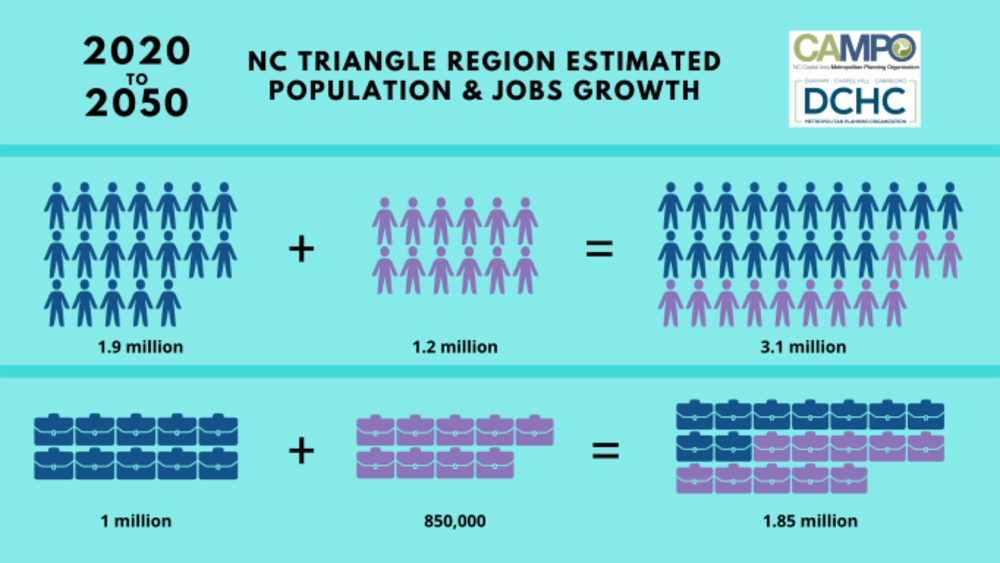
To analyze the transportation investment choices we have, the MPOs followed a systematic process that began with an understanding of how our communities’ plans envision guiding future growth. Next, planners used sophisticated software to forecast the types, locations and amounts of future population and job growth based on market conditions and trends, factors that influence development, and local plans. Based on the forecasts, they looked at mobility trends and needs, and where our transportation system may become deficient in meeting these needs.
Alternatives Analysis – Evaluate Potential Solutions 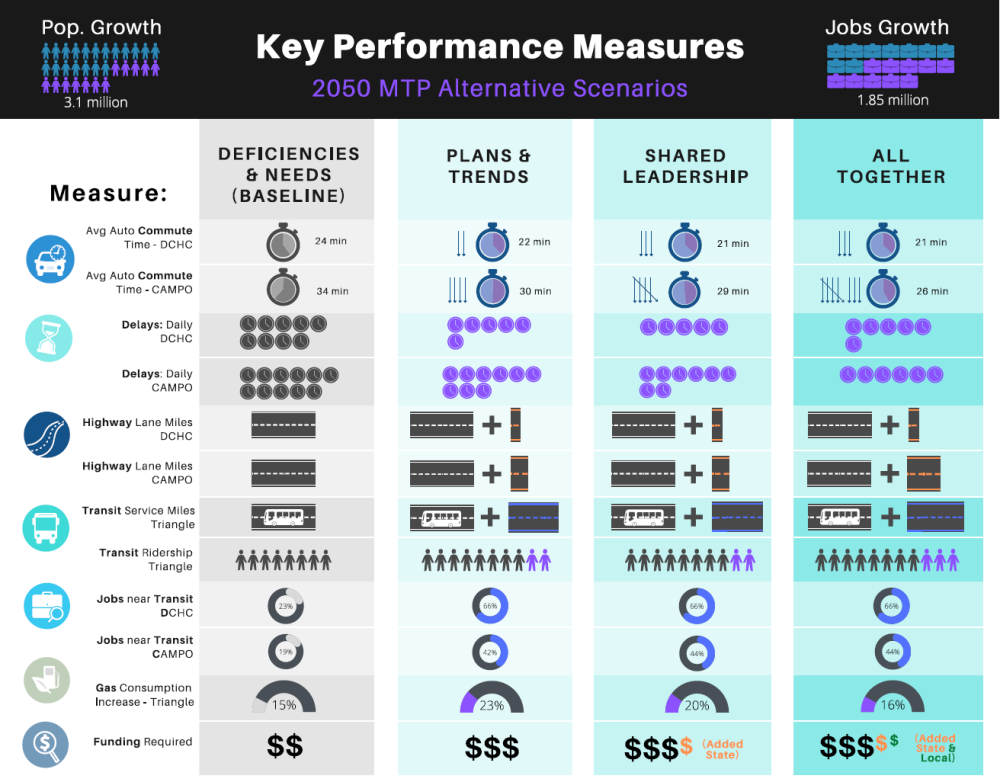
Working with a variety of partners and based on public input, three (3) different transportation system alternative future scenarios were developed and analyzed - comparing the system alternatives against one another and to performance measures.
Community Feedback Needed
Now it's time for you to re-engage in the process!
Take a look at the alternative future scenarios and share what you like or don't like about them;
What key elements/attributes should be carried forward into a single preferred alternative for further analysis and sorting of transportation projects into 10-year buckets?
Share your perspective:
Email a comment
Leave a voicemail
Online Survey
- Closed on Sunday, Aug. 29, 2021
Online Public Info Sessions were held on August 19, 2021
Learn more about the alternatives within each area by clicking on the MPO logos below:
CAMPO Member Organizations:
Cities of Creedmoor and Raleigh; Counties of Franklin, Granville, Harnett, Johnsons, and Wake; and Towns of Apex, Archer Lodge, Bunn, Clayton, Franklinton Fuquay-Varina, Holly Springs, Knightdale, Morrisville, Rolesville, Wake Forest, Wendell, Youngsville, Zebulon, GoTriangle, and N.C. Department of Transportation
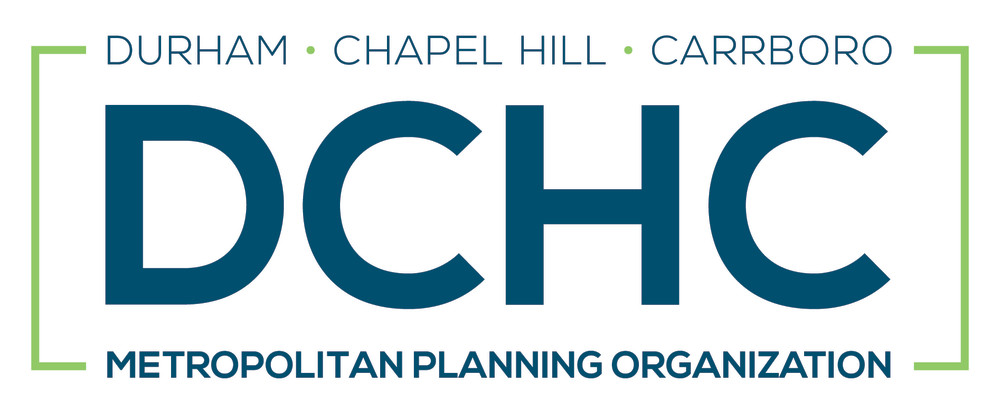
DCHC MPO Member Organizations:
Town of Carrboro, Town of Chapel Hill, Chatham County, City of Durham, Durham County, Town of Hillsborough, N.C. Department of Transportation, Orange County, and GoTriangle
Triangle Region's 2050 MTP Development
The Triangle region has two Metropolitan Planning Organizations (MPOs), who are working together to develop one 2050 Metropolitan Transportation Plan ("2050 MTP") for the region. Over the past...
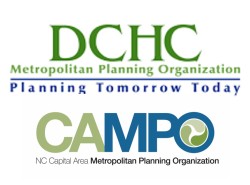
Priorities Survey for the Triangle's 2050 MTP
To inform the Alternatives Analysis for the development of Connect 2050, the Triangle Region's long-range transportation plan.
MTP Scenarios Survey for Executive Board
This survey tool will be used by the staff at both CAMPO and the DCHC MPO to gain input from (Executive) Board and TC/TCC Members related to the 2050 MTP Scenarios framework.
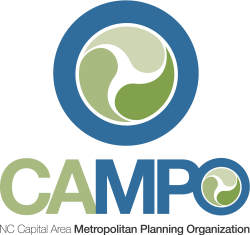
MTP Training Follow-up Survey
Thank you for attending the MTP Training hosted by CAMPO. Please take a few moments to share your thoughts and feedback on the training by answering the following questions.


